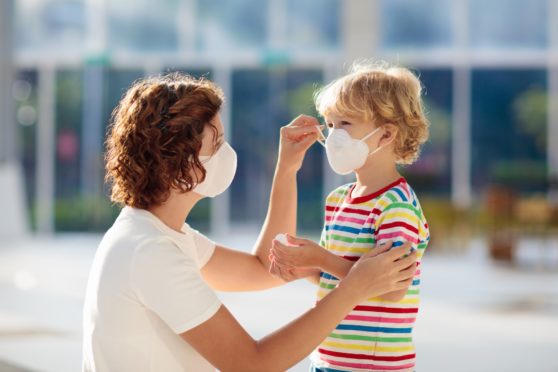
Some parents have left their jobs to look after their children during the coronavirus pandemic, a survey has found.
As UK households end a second week of living in lockdown, the first survey of its kind, by Save the Children, found children’s mental health and wellbeing has become a grave concern for parents.
The survey also revealed a quarter of parents are juggling working from home with childcare duties, while 17% have reduced their working hours to take care of children.
A further 12% have been forced to take unpaid leave to look after their children, while one in 10 have had to leave their jobs completely.
The survey was carried out between March 24 and 25, involving 1,002 parents with children aged six to 18 as well as youngsters in the same age bracket.
More than half of parents (56%) are worried about their child’s mental health at a time when schools are closed and contact with friends and family is restricted as a result of social distancing.
Youngsters said they were most concerned about a family member becoming sick (58%), with other main worries including food running out (25%), not being able to see friends (46%) and keeping up with school work (20%).
A fifth of children were worried about their future now schools have been shut indefinitely, while an overwhelming 85% said they were upset about not seeing friends and relatives.
Asked about the biggest practical concerns that came with looking after their families, parents said ensuring they have food supplies (48%), helping children with schoolwork (44%) and money (38%).
Other issues included job security (20%) and explaining the situation to their child (19%).
The survey is published as Save the Children launches a fundraising appeal for vulnerable children affected by coronavirus.
The children’s charity announced a new emergency grants programme in the UK to respond to the Covid-19 crisis, which aims to reach thousands of struggling families.
The programme will ensure families have access to early learning resources, as well as goods such as tables and beds, to help build home environments where children can continue learn.
It will also support vulnerable families with gifts in kind and food vouchers to help them make ends meet.
The charity has set up a free online resource hub, The Den, which will provide caregivers with a range of resources and activities.
Deb Barry, senior humanitarian and leadership adviser at Save the Children, said: “Throughout this challenging time, we’re here to support families by focusing on keeping children safe and healthy, and making sure they can keep learning, no matter what.
“Even before the coronavirus outbreak, four million children lived in poverty in the UK. We can’t let that number rise.”

Enjoy the convenience of having The Sunday Post delivered as a digital ePaper straight to your smartphone, tablet or computer.
Subscribe for only £5.49 a month and enjoy all the benefits of the printed paper as a digital replica.
Subscribe